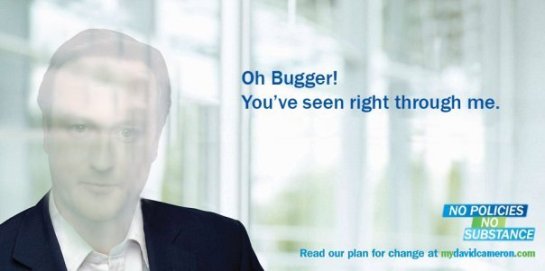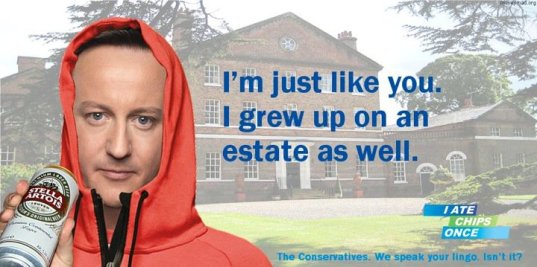
Even fellow Tories distance themselves from this “crazy fascist”
Yesterday, The VOAG re-published a story about John Butcher, a Conservative Surrey County Councillor for Cobham ward. He has worked out a brilliant scheme for pushing up property values in the county – by driving out everyone who is fat, takes recreational drugs, gorges on junk food or has ‘self-inflicted’ health problems of any kind. As a member of the council’s health committee, he has sent an email to staff suggesting a two-speed NHS in which “patients with self-inflicted morbidity, (mainly smoking, alcohol, narcotics or obesity) or an injury through ‘dangerous activities’ are placed in a much slower-moving queue”. https://suacs.wordpress.com/2012/06/04/john-butcher-surrey-heath-tory-councillor-health-committee-nhs
In a response to the Elmbridge Guardian, which first broke the story, John Butcher added: “If sports can ban performance-enhancing drug use, then entertainment etc. should ban narcotics and alcohol abuse”.
“Everyone in, or aspiring to, a position of public responsibility and everyone in a position to influence the public, including entertainers etc, should be asked to sign a voluntary pledge not to take illegal narcotics or consume excessive alcohol, or drive when so affected”.
“Anyone who fails to sign that pledge, or who signs it and breaches it, should be excluded from positions of public responsibility and influence. All public organisations, including regulated broadcasters etc, should agree to impose this exclusion”.
Fellow Councillor, Karen Randolph was also quoted in the paper. She said: “The views expressed by Councillor Butcher challenge the very credibility of Surrey County Council’s Health Overview Scrutiny Committee, of which he is a member. It is highly disturbing that the Conservative administration at SCC has deemed it appropriate to appoint to this committee a councillor who clearly does not support the NHS and who holds such extraordinary views about the responsibilities of the state to its citizens.”
Cllr John Butcher also sits on Elbridge Borough Council, where he lists his chief concerns as “Challenging wishy-washiness” and “nebulous do-goodery”.
Simon Cook, a Conservative councillor in Cullingworth, Yorkshire called John Butcher “a real deal health fascist” and blogged yesterday: “So if you smoke, drink, drive fast cars round a track or climb rocks (not sure whether Cllr Butcher’s ‘dangerous activities’ includes horse riding and playing rugby) you’ll be made to wait longer in the hope that you’ll move away from Surrey. Indeed, it seems that Cllr Butcher thinks that, by doing this, all these people with “self-inflicted” illnesses will move to places where the authorities believe in equal treatment”.
The real question is: How would John butcher’s proposals push up house prices in Surrey, and to whose benefit would it be? John Butcher’s argument is that people with illnesses will be repulsed from Surrey, whilst “healthy people will be attracted to the better healthcare that Surrey could afford, having been freed from the burden of treating sick people”.
What the councillor is really saying is drive out the poor and less affluent from Surrey (the sick, disabled, smokers obese et al, who are by-and large the less well off) to make lebensraum for his wealthy friends. Bring on the concentration camps.
But let’s give the councillor a chance. Let’s take his comments on face value. There are 1.08 million residents in Surrey. According to Surrey County Council, one in four adults in Surrey are smokers. Surrey NHS estimates there are 455,000 “hazardous”, “harmful” or “binge drinkers” in Surrey. http://www.surreydaat.org.uk/pdf/Alcohol%20Needs%20Assessment.pdf
The Obesity rate in Surrey, lower than the national average, is estimated by Surrey PCT to be at 20% of the population. http://www.guildford.gov.uk/CHttpHandler.ashx?id=569&p=0 As for drugs use, there are no statistics for Surrey, but in the South East, according to the ONS, 8.6% of the adult population took illegal drugs last year, with 3.3% of the population described as frequent drug users. http://data.gov.uk
The councillor extended his attack on the unfit and unwell to people engaged in “risky past-times and sports”. It’s plainly obvious that this is just a smoke screen to hide his real agenda, which is to chase the less affluent, who have a propensity to be less fit, out of Surrey. I can’t believe the Councillor is thinking of his horse riding, rugby playing chums when he talks of “dangerous sports”. However, taking Cllr Butcher at his word again, we have to take account of horse riding, rugby, perhaps even motor cycling, and a host of other recreational pass-times that might be considered potentially hazardous.
For example, according to Surrey County Council’s 2007 Rights Of Way report, there are 20,000 horses in Surrey. A 1998 Gallop poll found 6% of Surrey residents had gone horse riding in that year. http://www.surreycc.gov.uk/__data/assets/pdf_file/0009/176058/ROWIP-main-text.pdf
Where’s all this going, what’s the point of all these statistics? Well, by my reckoning, if the Councillor had his way, they’d be no-one left in Surrey. His policy certainly wouldn’t produce the rise in property prices that he and his chums so desire.
As an aside to these arguments; according to the ONS, Excise duty & VAT raised by the UK Drinks industry amounts to £22bn annually, whilst alcohol consumption costs the nation, through the health service, crime, lost production etc £20bn.
Estimates of the costs to the NHS from smoking varies greatly, one study estimated an annual cost of £610m. Another study (Allender, S- The burden of smoking-related ill health in the UK) estimates the cost to be £2.7bn – whilst the Centre for Health Economics estimates the cost to be between £1.4bn and £1.7bn. According to the HMRC (Revenue & Customs) Tobacco tax revenue last year amounted to £12.1bn.
Another argument, developed by the University of Public Health, Rotterdam indicates that smoking may even save the NHS money. Their study shows that since smokers on average die younger, they do not incur the costs of a lengthy old age or the costly diseases that are associated with it. Their study concluded that the average health cost of a non-smoker was $83,400 whilst the average health cost of a smoker was $72,600.
These fiscal arguments, which clearly show the tax payer incurs no cost from smoking and alcohol consumption, can be equally applied to the sporting activities Cllr Butcher appears so against. In each and every case revenue exceeds the costs.
It’s not the first time John Butcher has hit the local headlines. A council employee lodged an official complaint against him in February 2010.
Council proceedings start with a prayer, during which no one is allowed to enter or leave the council chambers. Cllr Butcher arrived late to the 2010 February council meeting- and finding that prayers had already begun, and the door to the chambers closed and guarded by an attendant- he lost his temper. He aggressively forced his way in to the chambers, thrusting the door in to the face of the attendant, injuring him and bruising his face.
An eye-witness told the Surrey Advertiser: “During prayers I became aware of someone attempting to gain entry to the council chamber, through the door being ‘guarded’ [by the officer], using his body to keep the door shut. It quickly became apparent that this someone had not been deterred by the efforts and they again tried to enter the chamber in a more forceful manner. I then recall [the officer] turning his head towards the door as if to indicate through the frosted glass to the person on the other side that prayers were still ongoing. A very short time afterwards I recall hearing something of a thud as the door hit [the officer] on the side of the head and I witnessed John Butcher stumbling/forcing his way into the chamber through the partially opened door.”
After the incident John Butcher refused to apologise to the attendant and denied injuring him, even though there was a council chamber full of witnesses.
Not only are John Butcher’s views abhorrent, but as I hope I’ve shown, they don’t even make sense or stand up to any kind of reasoning. Rather than exile the less-well-off, the sick and the disabled from Surrey, it’s time to kick John Butcher out of Surrey. Do not re-elect John Butcher to Surrey County Council or Elmbridge Borough Council.
John Butcher
18 Bramble Rise
Cobham Surrey
KT11 2HP
Tel: 07899 891685
jbutcher@elmbridge.gov.uk
 UK has ‘worst quality of life in Europe’
UK has ‘worst quality of life in Europe’


 Don’t Vote UKIP Don’t Vote Alexandra Swann: As UKIP Asks Should The Unemployed Be Allowed To Vote
Don’t Vote UKIP Don’t Vote Alexandra Swann: As UKIP Asks Should The Unemployed Be Allowed To Vote


 George Osborne has cut £18bn from benefits plus a further £81bn from public services in the name of unavoidable austerity, whilst at the same time providing huge subsidies, tax cuts and removing regulation for the hidden ‘welfare’ system that benefits the private sector.
George Osborne has cut £18bn from benefits plus a further £81bn from public services in the name of unavoidable austerity, whilst at the same time providing huge subsidies, tax cuts and removing regulation for the hidden ‘welfare’ system that benefits the private sector.

 Conservative Westminster council in Central London also wants to make it an offence to sleep rough – while slashing £5million of funding to hostels. Astonishingly, town hall chiefs claimed soup kitchens only “encourage” people to sleep on the streets.
Conservative Westminster council in Central London also wants to make it an offence to sleep rough – while slashing £5million of funding to hostels. Astonishingly, town hall chiefs claimed soup kitchens only “encourage” people to sleep on the streets.
 Focus On Benefit Cuts and Sanctions
Focus On Benefit Cuts and Sanctions





 The coalition government went on to make some of the biggest changes to the NHS since its creation.
The coalition government went on to make some of the biggest changes to the NHS since its creation. George Osborne rose VAT from 17.5% to a record 20%.
George Osborne rose VAT from 17.5% to a record 20%. The coalition government later abolished Child Benefit for higher earners.
The coalition government later abolished Child Benefit for higher earners. Hundreds of Sure Start centres have since closed their doors.
Hundreds of Sure Start centres have since closed their doors. Within weeks of the coalition government taking office it announced the abolition of the Future Jobs Fund.
Within weeks of the coalition government taking office it announced the abolition of the Future Jobs Fund.
 Since then we have witnessed some of the biggest cuts to welfare since the formation of the welfare state, which has led to a five-fold increase in poverty-stricken families turning to food banks.
Since then we have witnessed some of the biggest cuts to welfare since the formation of the welfare state, which has led to a five-fold increase in poverty-stricken families turning to food banks. The UK has been forced to endure some of harshest austerity measures in decades and those policies haven’t come from “further and further away”. They’ve come from David Cameron and his coalition government.
The UK has been forced to endure some of harshest austerity measures in decades and those policies haven’t come from “further and further away”. They’ve come from David Cameron and his coalition government. Sick and disabled benefit claimants are still being wrongly found ‘fit for work’ by inhumane benefit tests.
Sick and disabled benefit claimants are still being wrongly found ‘fit for work’ by inhumane benefit tests. Or hide jobseekers away on the government’s controversial Work Programme so that they can manipulate unemployment statistics perhaps?
Or hide jobseekers away on the government’s controversial Work Programme so that they can manipulate unemployment statistics perhaps? Tax cuts for Millionaires whilst some of the poorest in society are struggling to make ends-meet due to welfare cuts and poverty wages”.
Tax cuts for Millionaires whilst some of the poorest in society are struggling to make ends-meet due to welfare cuts and poverty wages”. Figures show that for the first time in history there are now more working people living in poverty than those in workless households.
Figures show that for the first time in history there are now more working people living in poverty than those in workless households.






You must be logged in to post a comment.